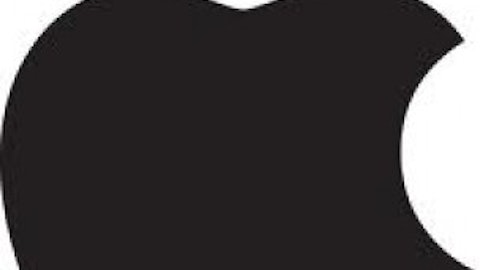
A lot of SEO discussion has centered around a recent blog post graphic showing that only 13 percent of Google search results are organic, and the rest are paid ads. The post, by Aaron Harris of Tutorspree, has been vetted by numerous SEOs, and if you dig deeper, you’ll see a different presentation of the facts.
Harris pointed out the obvious, that Google Inc (NASDAQ:GOOG) has monetized search. He used one specific search phrase, “auto mechanic,” in one search to make a point, and while we can’t consider his post significant scientific research, it’s worth understanding the paid versus organic search debate.
Google vs. Bing in History
First, understand that recent analysis shows a similar “auto mechanic” search on Bing produced just one organic search result on Page One. Google Inc (NASDAQ:GOOG) is not the only player trying to make big money on search; they just do it best, right now. Bing and Google have a long history of trying to one-up the other.
Both companies own other entities, so obviously neither is purely a search engine. Consider the recent brouhaha about YouTube, a Google Inc (NASDAQ:GOOG) property. Microsoft Corporation (NASDAQ:MSFT) created a YouTube app for Windows Phone smartphones that didn’t display ads, resulting in a cease-and-desist letter from Google. No one, it seems, was cheering on Microsoft, as several video creators and publishers jumped into the fray to voice their support for Google Inc (NASDAQ:GOOG)’s stance. Microsoft eventually backed down and met Google’s demands.
Every time Google Inc (NASDAQ:GOOG) yells foul, Microsoft Corporation (NASDAQ:MSFT) retraces its steps and continues the same tactics. Don’t forget the Google sting operation a few years back to prove that Bing was using Google data in its own search listings. Bing uses Internet Explorer data signals during all your searches, on Google, Amazon, eBay, etc., to enhance its own search rankings. After write-ups by numerous SEOS, Bing refused to stop using signals from Google. Google insists it does not use signals from other searches.
Google’s More Nosy than Bing?
Google Inc (NASDAQ:GOOG) is not competing against an imaginary foe that still provides only organic search results, tailored to your needs, without culling data about your location or interests. No, Google is competing with Bing, primarily.
Bing’s marketing team is still using the “Scroogled” campaign. The campaign is steeped in the reality that Google Inc (NASDAQ:GOOG) and Microsoft both gather information on you and use it, but in ever so slightly different ways. Bing says Google is breaching your privacy, but I don’t see it that way. I suggest you take a few moments to read Microsoft’s full privacy notice to familiarize yourself with all the ways that Microsoft Corporation (NASDAQ:MSFT) gathers data about you and then uses it. The essence of what the two companies do in targeting advertising to you is different only in theory, not results.
Differentiating Ads and Organic Search Results
The FTC wants all heavily trafficked search engines to better differentiate between ads and organic search, and that’s why in June they sent a letter to AOL, Ask.com, Bing, Blekko, DuckDuckGo, Google, Yahoo! Inc. (NASDAQ:YHOO) and 17 other search engines. The FTC letter will force search engines to use one or more consistent visual elements, as an industry-wide requirement, so consumers always know what is paid and what is organic.
Google Inc (NASDAQ:GOOG) does place paid search ads in large clumps above organic search results. Readers are capable of ignoring ads or using them, if the information is valuable. A year-old study from Wordstream found that 64.6% of people click on Google Ads when shopping for a product or service.
In the final analysis, relevance and helpfulness are the two most important elements in search. We can safely assume that Google wants to provide relevant, helpful results, whether paid or organic. Why? If the results don’t meet consumers’ demands, they take their business to a different search engine. Paid advertisements are targeted to your search, so they are still search results. If you’re adamantly opposed to advertisements, American search engines aren’t the place for you.
By The Numbers
Through all the grappling, Google hasn’t lost any market share to Bing. The latest comScore data ranking search engine market share shows that Google is steady at 66.7% of the market, while Bing and Yahoo! Inc. (NASDAQ:YHOO) have traded 0.5% of share, with Bing at 17.9% of searches and Yahoo! Inc. (NASDAQ:YHOO) now at 11.4% share. In effect, Microsoft is swapping market share with Yahoo. The two companies haven’t figured out how to better monetize search, which Yahoo’s new CEO Marissa Mayer lamented earlier this year. Google Inc (NASDAQ:GOOG) is still the force to be reckoned with in search, paid or organic.
The article Is Google Search Really Dead? No, It’s Just Like Bing originally appeared on Fool.com and is written by Gretchen Stone.
Gretchen Stone has no position in any stocks mentioned. The Motley Fool recommends Google. The Motley Fool owns shares of Google Inc (NASDAQ:GOOG) and Microsoft Corporation (NASDAQ:MSFT). Gretchen is a member of The Motley Fool Blog Network — entries represent the personal opinion of the blogger and are not formally edited.
Copyright © 1995 – 2013 The Motley Fool, LLC. All rights reserved. The Motley Fool has a disclosure policy.





